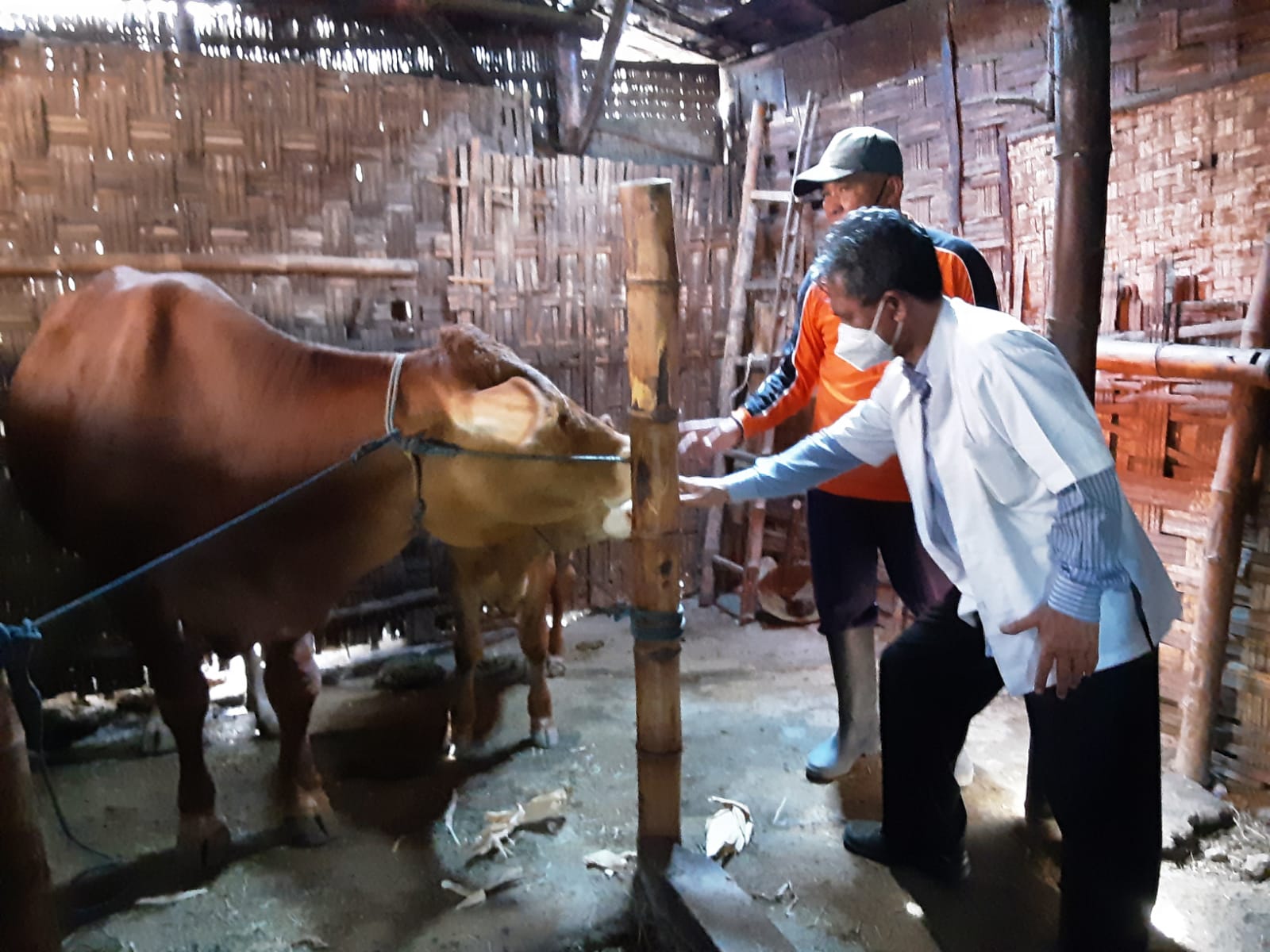UNAIR NEWS – Indonesia still imports cattle and beef from other countries. According to the Ministry of Trade in August 2020, the total volume of imported cattle reached 12.98 thousand tons, although Indonesia, especially East Java, has a huge potential for cattle production.
This problem is observed thoroughly by a professor of the Faculty of Veterinary Medicine (FKH) Universitas Airlangga, Prof. Dr. Dewa Ketut Meles Ms., Drh. According to him, fattening bulls from superior breeds is a way to boost national meat production. “If this is applied, there is no need to import cattle,” said Prof Meles.
Through community service activities entitled Regional Superior Product Development Program (PPPUD), Prof. Meles and his team collaborated with the Artificial Insemination Center of Singosari, Malang, to produce sufficient superior bull breeds. The method employs the bull’s sperm to be injected into the female cow. This process was carried out in 2020 in Kedungpring Sub-district, Lamongan, collaborating with an MSME, Gunung Rejo Makmur Beef Cattle Farm Group.
Prof. Meles revealed that bulls do have a faster growth rate than females. Furthermore, with a balanced diet, inseminated bulls can reach 800 kg in two years.
“Bulls can grow up to 500 kg or even 800 kg in two years. Meanwhile, the average female cow can only be 480 kg at max,” he said.
In the second community service on Saturday, September 4, 2021, the insemination results were significant, 90 percent of the total calves born were bulls.
“Firstly, we prepare the sperm and separate the male and female. Hopefully, many male calves can be fattened since the fattening process needs an adequate population. Otherwise, it can’t be done,” he explained.
Currently, the process of fattening cows has begun. Prof. Meles advised the breeders to feed the cattle with agricultural and plantation waste as a substitute for limited grazing fields. For instance, they can use peanut shells, coffee husks, heaps of corn, palm dregs, and hay.
The fattening process takes at least two years. During the process, Prof. Meles and his team will continue to assist the village and monitor the cattle development.
The community service program, which has been implemented since 2020, is planned to run for three years. Prof. Meles deliberately chose Kedungpring Sub-district, Lamongan, because it has enormous cattle-producing potential. There are at least about 4,000 cattle in Kedungpring Sub-district. Thus, the area became a fostered village of FKH UNAIR.
“We hope that Lamongan can produce superior bull breeds through the insemination process. Hopefully, this program can become a pilot project for others so that they can imitate it,” he hoped. (*)
Author: Erika Eight Novanty
Editor : Khefti Al Mawalia (YA/AP)





